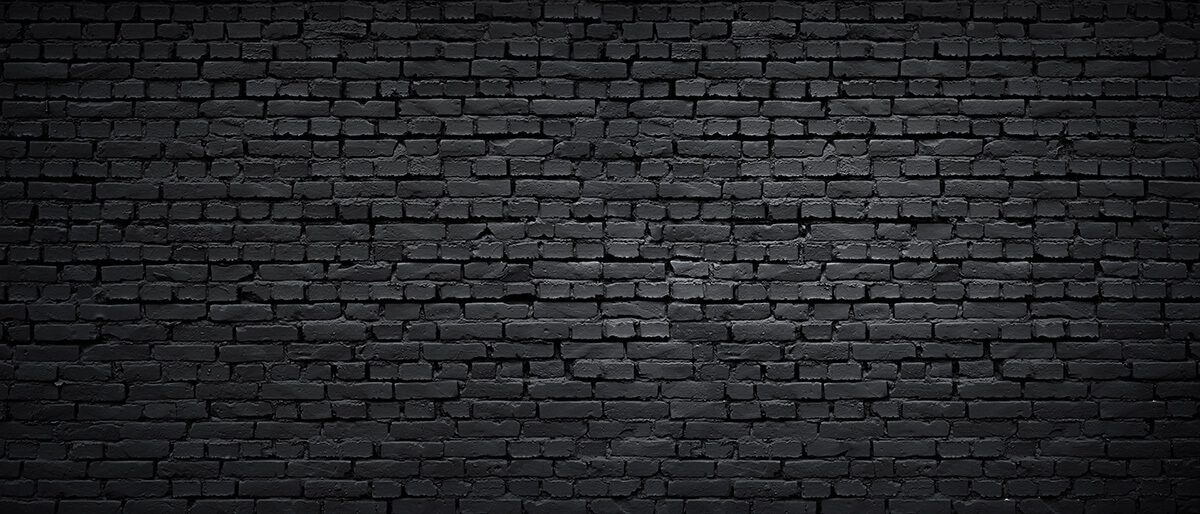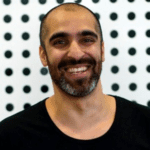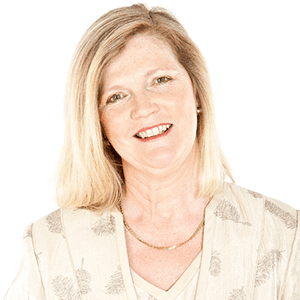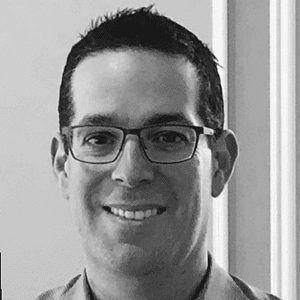

#29: A learning mindset – a winning strategy for you right now
We have a tendency to take the old way of doing things and simply translate them to an online format. Viren Thakrar, Co-Founder of In the Game, challenges that tendency and helps leaders reimagine how work is being done in our new flexible, remote working environment.
Stephanie: Hello and welcome to TEC Live. Stephanie Christopher here, chief executive of The Executive Connection. TEC connects CEOs, executives and business owners to the world’s largest business leader network.
Leah: This is TEC Live for this week, another remote episode. So Stephanie is still self-isolating but we still get to hear her dulcet tones. Stephanie.
Stephanie: Thanks, Leah. Right to the dulcet and remote, and I look forward to the day which I think is really soon when we’re actually TEC Live live in the studio and altogether. I have a great guest today in Viren Thakrar, someone I have known for some years and in fact work with many years ago, and he has done a lot since then. So I’m actually going to read his bio by way of introduction.
Viren has over 10 years of deep expertise in using psychology to help companies hire, lead and perform better. Viren is the cofounder of In The Game where he creates games, toolkits and workshops about people, culture and leadership. He aims to help companies create modern places to work, where people love what they do and where they perform at their best.
Prior to this, Viren was the head of Innovation and Analytics at an HR consulting company where he created innovative products and services in the people and culture arena. Viren Thakrar, welcome to TEC Live.
Viren: Thanks so much for having me, Steph.
Stephanie: Yeah, great to see you. Great to have you here. So the bit that I love when I read this this morning was creating modern places to work. So let’s get real. Everyone’s working in a modern place right now, so why don’t we start right there.
So my question is, how relevant is what you were doing with business leaders eight weeks ago, six weeks ago to where businesses are right now?
Viren: Yeah. Look, it’s more relevant than ever. And I think the interesting thing… You know, I’ve been having conversations with people that are in a similar space to me and there’s a difference between doing things and doing things well. So just because everyone is working flexibly, remotely, putting in place modern practices or trying to put in place modern practices, there’s a difference between doing them well and doing them.
Stephanie: Yeah. Tell me about that difference between doing things and doing them well. I mean it’s obvious, but tell me more about that.
Viren: Yeah. Look, one of the things, and this is understandable, I think we’re having to accelerate things under a bit of pressure to do things in a different way. The tendency tends to be to take the old way of doing things and just translate them to an online format. The online format is totally different and actually working remotely is totally different and it shouldn’t just be a case of taking the kind of old way of doing things and just applying them in a digital format. This is a good chance to reimagine how work is done and how we go about things.
I mean just even just a simple example would be if it was a nine-to-five environment before, it doesn’t necessarily need to be a nine-to-five environment now. Do people need to be logging in at nine o’clock and logging off at five? Is that the best way to do things or is it more of the different ways of doing things that might be better?
Stephanie: Yeah, I think it’s a really interesting point because… You said the word accelerated. The speed of change was so quick and we had no choice. I think that that has been the natural first thing to try to achieve. It’s okay, we’re all remote, everyone’s doing the same thing, we’re fine.
Viren: Absolutely.
Stephanie: But you’ve just, right, just push me there to think that’s not necessarily the right thing going forward at all. Is that?
Viren: No, I don’t think so. I think, if we kind of look back to and I think you said the word choice, I think choice is a really interesting one because I think people… Autonomy and a choice is a universal driver for most people. I think this kind of flexible digital environment should… It shouldn’t give people more flexibility, more freedom and more choice. But if we do what we were doing before, we just try and translate that to this environment and this world. I think that that’s a mistake, and I think it’s a missed opportunity as well.
Stephanie: Yeah. I know that a lot of the business leaders that I’m talking to at the moment are thinking deeply about what are the innovations, what are the real positives that they want to hold on from this period as the cycles shifts and put that into their business going forward. What kind of conversations are you having with business leaders about this, Viren?
Viren: Yeah. Look, I think it is interesting because I think people are getting to this point of or starting to get in this point of reflection. I think we’re at the point where we’re starting to maybe see some light at the end of the tunnel. We’re seeing some, okay, there’s something at the end of this. And I think people naturally hit this point about okay, there’s some things that I actually really liked about what’s happened.
All things aside, there’s actually been some positives here and some of the positives I think I’ve heard from organisations is the rates of change. Things that we may be trying to do for six months or a couple of years, they’ve managed to achieve in a couple of weeks and wow, that’s amazing. Actually, people can change, people can come up with new ideas and can do things differently.
I think that’s thinking about how do we kind of capture that essence and capture that mindset and put that into our company. So I think that’s one that’s been really beneficial. I think obviously whilst it’s been forced, I think companies are seeing that flexibility in remote work. It does work. Just because people work from home, they don’t all of a sudden stop working. Actually, people work in different ways.
In some cases, people are working more. And I think that’s a separate topic to think about in terms of well-being and personal productivity is kind of how you balance the two things up because we don’t want people overworking and burning out. But I think at least what this, I’ll say experiment has shown is that people can work remotely.
Stephanie: An experiment.
Viren: Yes. I know.
Stephanie: So someone is managing all of this out there. Someone is looking at it. Okay.
Viren: Well, as someone that’s got a such a passion for psychology, I can’t help but look at it as a lifestyle experiment.
Stephanie: Okay. So let’s take that angle. All right. If this were an experiment, what would be the hypothesis that we’d be testing?
Viren: I do want to add a disclaimer because there is a problem with this being a genuine experiment and a genuine experiment that’d be a controlled condition. I think one thing that I would caution with is like, it is an experiment, but it’s an experiment under undue circumstances. But the hypothesis would be that… I think if we just look at the remote work angle, then if we instigate remote work, people will be more productive and more engaged.
That would be a genuine hypothesis I think prior to this that I’d be talking to organisations in terms of the benefits of flexibility. You’re getting better motivation, better performance, better engagement. Also, I guess, you’ve got the broader lens of you’re attracting a broader talent pool as well because flexibility is a really important driver for that.
Stephanie: It’s an interesting thing. I’ve had people on the podcast. I’ve had Maja Palenka around this podcast talking about… I’ve had Steph Reuss and Vicky Stuart from Beam on this podcast talking about how people are more productive working from home. And I didn’t believe any of you, just putting it out there, until five weeks ago when productivity has gone through the roof. Now again, because of this non-experiment we’re in, the conditions aren’t… There’s so many other confounding variables.
Viren: There are. Yeah. It’s not
Stephanie: No. So we can maybe lose that analogy, but fundamentally, people have had more to do in this period than they may have had in another time to be responding to an interesting cycle.
Viren: That’s right.
Stephanie: So, I want to talk about that though because the way that we’re all working remotely right now. So it’s right now 10:15 in the morning and this is my sixth call today. I probably got about another eight to go, and most of them are using this technology. It’s exhausting.
Viren: It is. Yeah.
Stephanie: So when we build back from this and keep the good stuff, how can we manage it? So as you’ve just said before, people aren’t working so intensely, perhaps would be a way to talk about it.
Viren: Yeah. Look, I personally believe and a lot of people are kind of getting fatigued from the amount of video calls they’ve got. I think it’s a carry over from the old world of meeting syndrome. You know, a meeting for everything. I think once people start to realise some of the benefits of digital… And simply we’ve got so many more forums of communication available to us.
Again this is natural. It’s human nature. Look, it’s an unusual circumstance. People are craving connection because we’re just forced into isolation. So video is a nice go-between. I’ve had video calls with people that I haven’t spoken with for years and it’s quite interesting. But before this, we probably wouldn’t have reached out, but people have reached out and I’ve connected with people that I haven’t chatted with for a while because people are craving connection.
I think this will pass and I think people, again, will start re-imagining, okay, video, video meetings, video chat, that’s one mechanism. There’s so many other communication channels and tools that are available to us and we should start looking at how do we get away from the old world of everything has to be a meeting, because it doesn’t. And that was a problem before this as well.
Stephanie: Well, it’s a productivity killer, isn’t it? Because I know…
Viren: Absolutely.
Stephanie: Well, five weeks ago, three weeks ago, whatever, when people had a lot of additional work on their plate because of this drive for video, I had a lot of my team saying that I haven’t got time to do my job well.
Viren: No. It’s a problem beforehand as well, if you have too many meetings. And actually, it’s a shame because, I think one of the big benefits of remote working is the ability to do proper deep work. I think when you look at some of the science behind this in terms of how people work and how long it takes to get into this mind frame of deeper working or mindset of deeper working, one of the benefits of working remotely is you could just switch off.
This is a reason I think a lot of people pre all this used to actually go work from home. It’s like, ‘Oh, I’ve got this really important thing I need to work on. I’m going to work from home because it’s free from distraction. People won’t come up to my desk and I’ll be able to really sink my teeth in something and do something really productive.’
That used to be the reason that people work remotely prior to all of this. So I think we need to still capture some of that because it’s a really important benefit of flexible and remote work.
Stephanie: Now, the world shifted somewhat from the days when I worked with you a long time ago in organisational psychology and you’re right, the psychs were always the one working from home because you have these reports and at the time in deep work. The world has changed since then. The world of work has changed because collaboration and co-creation is a huge part of what work looks like right now.
Viren: Absolutely.
Stephanie: So yes, there’s the opportunity for deep work, but if I think of the people that I’m engaging with each day, it’s fast work that’s making fast decisions and dare I say pivoting and interesting staff. So there’s probably very significant work being achieved in every conversation and every collaboration. Can remote working work in that environment as well?
Viren: Yeah. Look, I think so. I think it’s about the blend. So I think there needs to be space for deep work. So I think if we look at deep work in terms of reading, scanning externally, analysing information, thinking about new ideas, all of that requires quite a lot of deep thinking as that requires space and time. But then there’s a beauty of then people coming together and collaborating and bouncing ideas off one another, challenging each other’s thinking, coming up with better and new ways of doing things. That diversity of thought and harnessing, that’s really powerful.
So I think that there needs to be space and time for both. I think that’s really one thing that’s really important. And then I think the digital form does provide some brilliant tools to actually facilitate some of these conversations. So I think it’s just the case of transitioning our mindsets about what digital can do and how some things can actually be better in a digital forum.
Just to even give you an example, I’ll run workshops and online workshops and one of the components that I really like is actually the debriefing component. Sometimes it’s a lot better when it’s done remotely because people can type their thoughts up, they share it on a screen with everyone else. You don’t know who’s typed what. So it’s actually from a diversity of thought perspective, it’s much better because we know what it’s like in a meeting where it’s just the loudest person talks and their opinion counts the most. In this digital forum, it kind of levels the playing field a little bit if we use the tools that are available to us.
Stephanie: Yeah. I think that’s a really interesting point because it’s a different modality.
Viren: Yeah, it is.
Stephanie: So normally in a group of people, as you say, it’s voice, but I’m really enjoying the chat function in virtual video tools because it’s so interesting that some of the things people write are actually quite profound, and some of the quieter people in a meeting will write something that I know they would never say.
Viren: Yes.
Stephanie: I’m finding that that’s a real value in that. And thinking that in a future where people are meeting face to face, how could you still have that as well? Because everyone writing something down in a room feels kind of forced as well.
Viren: It does. It feels a bit old school as well. When you’re able to write things down, it can feel a little bit like an old way of doing things. It’s something I think great about the digital environment. People are just used to it either through the fact they text a lot and chat on the social media platforms. They’re used to typing stuff online and typing their opinions online. I think in a digital forum when we’re running these kinds of sessions where we get people to collaborate, we can get the quieter voices out, the people that might not normally talk, because it’s so much more comfortable typing rather than having to speak in front of a group of people.
Stephanie: I’m happy talking.
Viren: Yeah, I am as well.
Stephanie: my typing is very, very bad. Yeah. You’re a talker.
Viren: I’m a talker. Yeah, yeah.
Stephanie: I’d love to really get onto now about change and about leverage of some of the things that we’ve all had to do. So I was saying to you before that I had an experience yesterday of I had to go into the office to perform a task, and a word that’s been playing in my mind is irrelevant because walking around there, that’s from an old time. That’s from the time before the world changed. That’s from a time when we’d all drive to place, go up in the lift and stand back close to each other.
That time is gone for all sorts of reasons, because our businesses have changed, we’ve changed as people, and there’s no going back to that. Because I looked at it yesterday and I thought, whenever we go back to whatever, we won’t be standing close to each other. You won’t be right next to someone. The two other people who were in there yesterday, two of us were looking at something on a camera and then we both immediately sort of stepped apart. So there’s no going back.
I’d love your perspective on how a business later take the next steps now to make sure that it’s embracing the change that’s happened, being open to the opportunity, being optimistic about a future and recognising that there’s no back unless it’s a factory where you’re making things, but still that’s going to have to be done differently. That’s the longest question in the world, Viren. Where does a business leader start with this?
Viren: I always kind of go, this is where it’s really important and I’m sure a lot of businesses have re-looked at their strategy. I think that’s one of the most important places to start is, what is our strategy? What are we looking to do? What’s our broader vision? I think breaking down from that, what are our key objectives and what are the skills and capabilities we need in order to get to where we want to go. And I think designing things from the ground up from there. For me, it’s the most logical place to best start.
Stephanie: So that’s not different from what you would have suggested to make six months ago?
Viren: No. I mean the context is different, but the context changes. It’s changing this way this time but it changes in… It’s changed in many times just even in my lifetime. You know?
Stephanie: Yeah.
Viren: Advent of growth of internet, growth of social media, technology, these are big… They’re big shifts. They perhaps didn’t happen overnight, but they happened relatively quickly. And that’s forced lots of businesses to change the way they do things anyway. I think this is not necessarily all that different in that regard. It’s a big contextual event that’s happened and it forces us to think differently about our strategy and how we go about doing things.
Stephanie: Right. Okay. So businesses are thinking about their strategy now in this world and where they are in the cycle. So businesses are thinking of that. But then what are the important people decisions right now that businesses need to be making?
Viren: Yeah. I think in terms of the people decisions, this is quite an interesting one because I think you’ve obviously got the ‘Do we go back to like… Even the practical is, Do we go back to office spaces? You mentioned your office, you went back to the office. Do we go back? How do we go back? Is that important anymore? I think that’s a simple process, simple practical decisions that are going to be really important.
I think what companies are grappling with more now is when we can’t see someone, we don’t know necessarily what they’re working on. How do we deal with that? I think that’s kind of washed over a little bit because people have been understanding that, look, everyone’s transitioning, moving at quite a pace, let’s just do what we can and we’ll figure it out.
But I think it will start dawning on companies that look, we need to… Performance is still obviously a major consideration. I think it’s taken a backseat and rightly so for many companies right now. It’s more about kind of well-being and immediate survival. But it will come on to companies now that Hey, these things that are important for performance engagement they’re equally important now. How we drive those things in a kind of blended environment, that’s going to look a little bit different. And so how do we grapple with that?
Stephanie: Actually, that’s a really good point. I wanted to talk to you about a blended environment. So before we flip the switch and everybody out, we had some people remotely and some people at work, and maybe we weren’t very good at that because what we were trying to do is do it in an old model.
Viren: We were. Yeah.
Stephanie: So you need to be Zooming, Teaming, FaceTiming into this meeting. How can you best work within a blended model with your team?
Viren: Yeah. Look, I think the ultimate principle I always go back to is creating alignment together with autonomy. The benefit of remote work in a lot of cases, especially for knowledge work should be you can basically work anytime, anywhere. That’s the utopia. It doesn’t matter where you are. It doesn’t matter what time you switch on. You have total autonomy about when you do things.
So as an organisation, what you then need to be doing is driving autonomy, sorry, alignments and what that alignment should create is transparency and trust. If I’m really clear about what I expect you to produce from an outcomes perspective and I have oversight of how you’re going against those things relatively frequently, it doesn’t really matter. You’re getting the job done.
So if I’m really clear about what I want you to do and what good looks like, and you go away and do that in your own time in the way you see best, everyone’s winning. People are happy because they’re getting autonomy. Companies are happy because they’re getting people that are performing on the areas they need to be performing well.
Stephanie: Okay. That makes sense. And again, it’s interesting. I’ve had these conversations with people, but it makes sense now because I’m living in this practical embodiment of it. I think some of the realistic things about people working from home have become okay as well because before it would not be okay if, pretend I had a five-year-old, popped into this video right now, but now that’s kind of okay. And I think that leaders and managers are just going to accept the whole person. So flexibility becomes even more flexible, doesn’t it?
Viren: Oh, yeah. I’m so happy about that that that’s become… It’s the reality. I’m not just at work Viren. I am Viren and I’ve got many sides to me. One of the sides, I’ve got two boys. They do sometimes jump on the video camera and that’s fine and it should be fine. I think the more we can take time as leaders and companies to understand and support the whole of person, I just think it’s a win for everyone.
Stephanie: Yeah. I do, too. I think it’s again shifted us, and you have a more authentic view of a person. Where do they sit? What does it look like? Who really are they?
Let’s touch on mental health. I have a theory that we thought a lot about what the mental health of people will be right now and in this stage of the cycle. I think we’re going to have to watch more carefully where people are as they move into perhaps less restrictions, engagement but a different kind of engagement. My world has completely changed, but it’s not going back. Do you have any thoughts on that?
Viren: Yeah. Look, and this is one of the… You know, when someone’s coming in… Let’s pre-world someone’s coming in everyday to an office. You get to see them, and I think there’s something powerful about that at least and that there is some kind of… It is a bit of an old school. We get to see them and you get to, I think if you’re a good leader, you’ll have a good oversight of your people and how they’re going.
In this remote world where people might be on and off, you might not know so much how they’re tracking along. I think this is where personal relationships and connection are really important. So as a leader, you probably have to make a little bit more of an effort to keep in touch with people without overwhelming them, and it’s such a kind of fine balance.
As a leader, the well-being, mental, physical side of your staff should be paramount of importance to you. I think that’s different. You’re not going to be seeing someone every day. So as a leader, you need to be quite conscious of keeping in touch, checking in and connecting with all the people that you lead.
Stephanie: It’s being intentional about it. I raise it a lot here, but I’ll obtain Pilates on a Friday afternoon over video conference. It has been wonderful. We’re doing it every week what I’m loving about it is seeing their families as well.
Viren: Yeah. Seeing everyone.
Stephanie: So we’ve got partners in and kids turning up and it’s been really nice. I’m thinking how can you do that when people will have to figure out how to translate that one.
Viren: That’s right. Yeah.
Stephanie: So Viren, what I’ve heard is choice. That’s clearly a big word for you.
Viren: Yeah, it is.
Stephanie: I’ve heard that through this non-experiment experiment that we’re getting to test some things and that we’ve been able to test some of what we’ve heard about productivity, the use of digital tools, the power of video conference, and I’ve heard your warnings about things like making sure people aren’t burning out and that they’ve got time to do work and imitate the value of deep work and environment changes.
I think you’ve given us some good perspectives on what we can all take into the next steps of our future that we’re building for ourselves as leaders and proud businesses. I’ve found that very helpful and I would like to talk again at some point as this continues. So, Viren Thakrar, thank you so much.
Viren: Thanks so much for having me, Steph. Time just flew by.
Stephanie: So that’s TEC Live for today. CEOs are in the business of making decisions and leadership is the art of execution. I’m Stephanie Christopher and look forward to talking to you next time.



